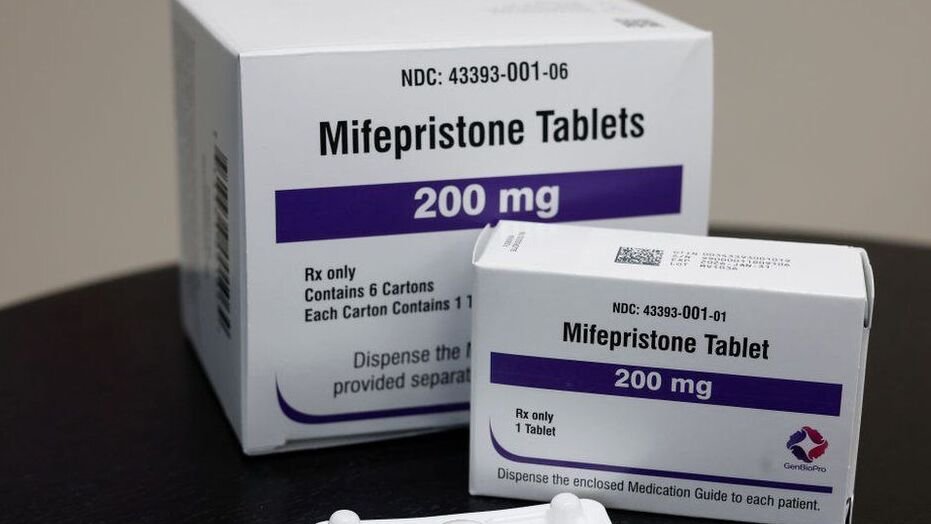The US Supreme Court seemed doubtful about an attempt to limit access to a widely used abortion medication, mifepristone, during a hearing on Tuesday.
Several justices questioned the appropriateness of challenging the drug’s federal approval.
This marks the most significant abortion case before the Supreme Court since it revoked the national right to abortion in June 2022.
The verdict could impact abortion access for millions.
The case revolves around decisions made by the Food and Drug Administration (FDA) to relax restrictions on mifepristone’s usage since 2016.
In November 2022, the Alliance for Hippocratic Medicine, a coalition of anti-abortion physicians and activists, filed a lawsuit alleging the drug’s safety concerns and the FDA’s inappropriate expansion of access.
Numerous studies have affirmed mifepristone’s safety since its initial FDA approval in 2000.
However, the group, comprising medical practitioners, argued potential harm to members treating patients who used mifepristone. They cited religious beliefs as conflicting with such treatment.
Elizabeth Prelogar, the US Solicitor General, informed the court that the doctors failed to demonstrate direct harm from the FDA’s decisions.
She cautioned that a ruling in favor of the anti-abortion group would disrupt the federal drug approval system severely and harm women nationwide.
Several justices appeared skeptical of the case’s foundation. Even conservative justices, who previously sided with anti-abortion plaintiffs, questioned whether the doctors suffered due to the rule changes.
Justice Amy Coney Barrett, appointed by former President Donald Trump, pressed the group’s attorneys on whether the cited doctors had been compelled to terminate pregnancies against their will.
Some justices, both liberal and conservative, questioned the alignment between the group’s claimed injuries and their pursued changes, potentially limiting millions’ access to mifepristone.
Justice Neil Gorsuch, another conservative appointed by Mr. Trump, queried whether ruling in their favor might enable “a handful of individuals” to turn a “small lawsuit into a nationwide legislative assembly on an FDA rule or any other federal government action.”
Two liberal justices, Justice Elena Kagan and Justice Ketanji Brown Jackson, inquired why doctors were not already safeguarded by their right to conscience objections to certain procedures, like abortion.
Mifepristone, used with misoprostol for medical abortions, is now the primary method of abortion in the US.
According to the Guttmacher Institute, medical abortions constituted 63% of all abortions in 2023, up from 53% in 2020. Over five million US women have used mifepristone for pregnancy terminations.
The court previously declined to consider a challenge to the FDA’s approval of the drug, but a ruling against the FDA could severely restrict access by rolling back expansion efforts since 2016.
In 2016, the FDA extended mifepristone’s usage to the 10-week mark instead of seven. In 2021, it removed in-person dispensing requirements, allowing providers to mail it to patients.
In 2022, the FDA further allowed retail pharmacies to dispense the drug, broadening prescribing access beyond doctors. Subsequently, a Texas judge in 2023 rescinded the FDA’s approval of mifepristone.
Abortion remains a deeply divisive political issue in the US and is likely to be prominent in the 2024 election.
Reflecting this division, anti-abortion activists and reproductive rights groups set up podiums with microphones near the Supreme Court steps. Each side presented speakers urging justices to “do the right thing,” though with opposing aims.
A few hundred protesters gathered outside the court on Tuesday. Many held signs declaring ‘abortion is healthcare,’ ‘trust medical science,’ and ‘we won’t go quietly back to the 1950s.’
Thirteen protesters were arrested for unlawfully obstructing roads and walkways, according to the US Capitol Police.




